September 25
Theophile de Viau (Died)
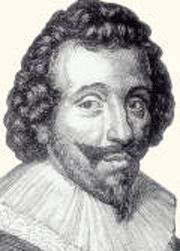
On this date in 1626, French poet Theophile de Viau (alternatively, Viaud) took his life, after being exiled from France for blasphemy. Born into a Huguenot family in 1591 in Clairac and educated at a Protestant college, Viau went to Paris at 20. Under the protection of Henri II, the duke of Montmorency, he wrote the tragedy “Pyrame et Thisbe” in 1615. It was performed theatrically, then printed in 1623.
Encyclopedias identify Viau as a freethinker known for his “unsparing use of sharp wit in epigrams on the church.” He also had a reputation as a “libertine.” He was accused of blasphemy and indecent writings in 1619 and banished from Paris. Friends in the south of France aided him and he was permitted to return to Paris the next year. Continuing “blasphemies” got him exiled again. He returned to France from England and began taking instruction in Catholicism. It is up to debate what his motives were. Regardless, a Jesuit priest published “The Curious Doctrine,” a tract against Viau, in 1623. He was condemned to death in August 1623.
Fleeing for his life, Viau was intercepted at the border and imprisoned in the Conciergerie in Paris. He defended himself and was freed after his sentence was commuted to lifetime banishment. He took his own life. (D. 1626)
“Follow Nature’s law.”
— de Viau's "creed," cited in "Who's Who in Hell," ed. Warren Allen Smith
Dmitri Shostakovich
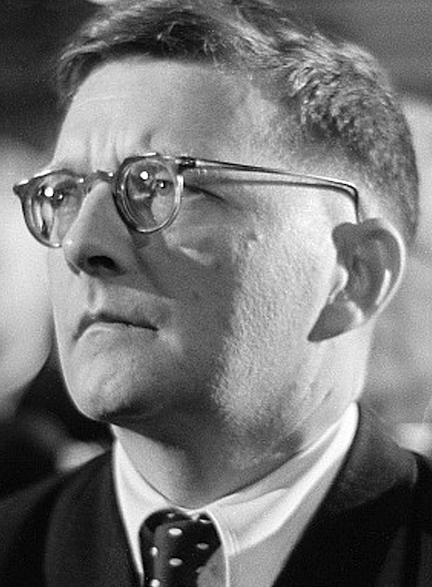
On this date in 1906, Dmitri Shostakovich was born in St. Petersburg, Russia, with a heritage of proud Siberian roots. His family initially welcomed Lenin and the revolution as a chance for real freedom and equality. Although he became privately disillusioned with the excesses of Stalin, Shostakovich had little choice but to “go through the motions,” eventually joining the Communist Party and fulfilling many official functions as a representative of the government due to his celebrity status as a great composer. He didn’t care about politics, except when he could use his connections to truly help people.
“For me there is no joy in life other than music,” Shostakovich wrote to a friend. “All life for me is music.” The prolific and tireless Shostakovich wrote nine operas and ballets, 37 film scores, 15 symphonies, hundreds of works for choral, solo, piano, concerti, incidental music, chamber and instrumental music. He is one of the most admired composers of the 20th century.
His Eighth Symphony (which he was forced to declare a “war symphony”) was a celebration of life: “I can sum up the philosophical conception of my new work in three words: life is beautiful,” he said during a 1943 interview. “Everything that is dark and gloomy will rot away, vanish, and the beautiful will triumph.” (Shostakovich: A Life, 2000) (D. 1975)
“When asked if he believed in God, his reply was swift and firm: ‘No, and I am very sorry about it.’ ”
— "Shostakovich: A Life" by Laurel E. Fay (2000)
Christopher Reeve
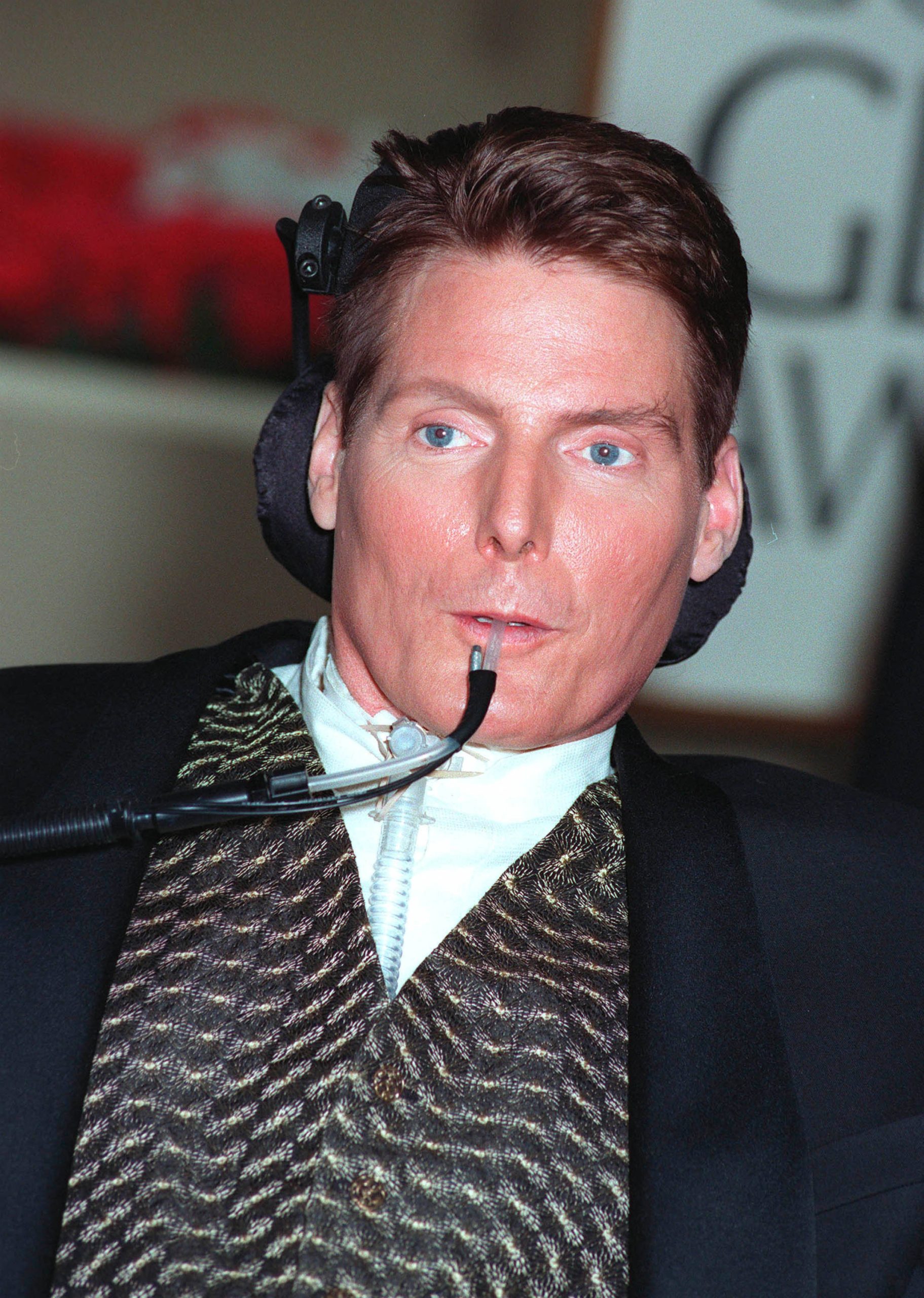
On this date in 1952, Christopher Reeve was born in New York, N.Y. His acting career had an early start at the McCarter Theatre in New Jersey when he was 9. Reeve graduated from Cornell University with a degree in music theory and English, and later attended the Juilliard School of Performing Arts. Reeve became a prolific theater actor, most notably performing in the Broadway play, “A Matter of Gravity” (1976), along with Katharine Hepburn.
Although Reeve acted in about 150 plays, he is most famous for his films — especially the immensely popular “Superman” (1978) and its three sequels, in which Reeve played the title role. His other films include “Somewhere in Time” (1980), “The Aviator” (1985) and “Village of the Damned” (1995).
Reeve appeared in numerous television shows such as “Smallville” and “Sesame Street” and he directed the film “In the Gloaming” (1997). He married Dana Morosini in 1992 and they had one son, William, born in 1992. Reeve also had two children with Gae Exton: Matthew, born in 1979, and Alexandra, born in 1983.
In 1995, he was paralyzed from the neck down after a horseback riding accident that injured his spinal cord. Following his paralysis, he became a disability activist who narrated the documentary “Without Pity: A Film About Abilities” (1996). Reeve was appointed Chairman of the American Paralysis Association in 1996, the same year that he and his wife founded the Christopher and Dana Reeve Foundation, which funds spinal cord research.
“It’s frightening to me, the organized religion,” Reeve told Charlie Rose in a 2002 interview when he spoke about his childhood fear of church and its images of a violent god. Reeve added, “My father was not religious at all, so I really did not bother with questions of faith and spirituality.” He became a Unitarian Universalist after his accident. He died at age 52 after an antibiotic for an infection sent him into cardiac arrest and a coma. (D. 2004)
“[F]amily, friends and well-wishers from around the world assured me that prayers and my faith in God would comfort me. I tried to pray but I didn’t feel any better, nor did I make any kind of connection with God.”
— Reeve's memoir, "Nothing Is Impossible: Reflections On a New Life" (2002)
Paul MacCready
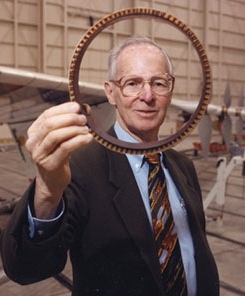
On this date in 1925, Paul B. MacCready Jr. was born in New Haven, Conn. He was interested in flight from a young age, often building prize-winning model airplanes. MacCready earned his bachelor’s degree in physics from Yale in 1947, a master’s in physics from the California Institute of Technology in 1948 and a Ph.D. in aeronautics from Cal Tech in 1952. In college he built gliders and won the U.S. National Soaring Championships in 1948, 1949 and 1953, as well as becoming the first American to be named World Soaring Champion in 1956.
MacCready, known as the “father of human-powered flight,” developed the Gossamer Condor in 1977, an aircraft powered solely by the muscles of its pilot. His later human-powered Gossamer Albatross accomplished the feat of flying across the English Channel in 1979. His many other aircraft include the solar-powered Gossamer Penguin, built in 1980, and the human-powered Pathfinder Plus, which in 1998 flew to over 80,000 feet. He founded AeroVironment Inc., in 1971, a company which develops energy-efficient vehicles and services. His numerous awards include the Guggenheim Medal in 1987, NASA’s Public Service Grand Achievement Award and the Reed Aeronautical Award in 1979.
MacCready was an active humanist who identified himself as having nontheistic beliefs (according to “CSICOP and the Skeptics” by George Hansen, published in the Journal of the American Society for Psychical Research, January 1992). “[Humans are] a magnificent random experiment with no goal,” MacCready said. He believed that religion formerly served the purpose of providing “authority, ritual, belonging, tradition [and] mystery,” but that it had become obsolete. MacCready opposed creationism and built a replica of a pterodactyl that was able to fly for the National Air and Space Museum in 1984, partially as an attempt to change the views of creationists.
He was a Humanist Laureate of the Academy of Humanism, a fellow of the Committee for Skeptical Inquiry and a member of the International Academy of Humanists. (All quotations cited are from More With Less: Paul MacCready and the Dream of Efficient Flight by Paul Ciotti, 2003) (D. 2007)
“The scientific community has actually taken the offensive against creationist laws. There is some life in rationality, but I must admit the adversaries seem almost infinite.”
— MacCready interview, Free Inquiry (Fall 1983)
Donald Glover
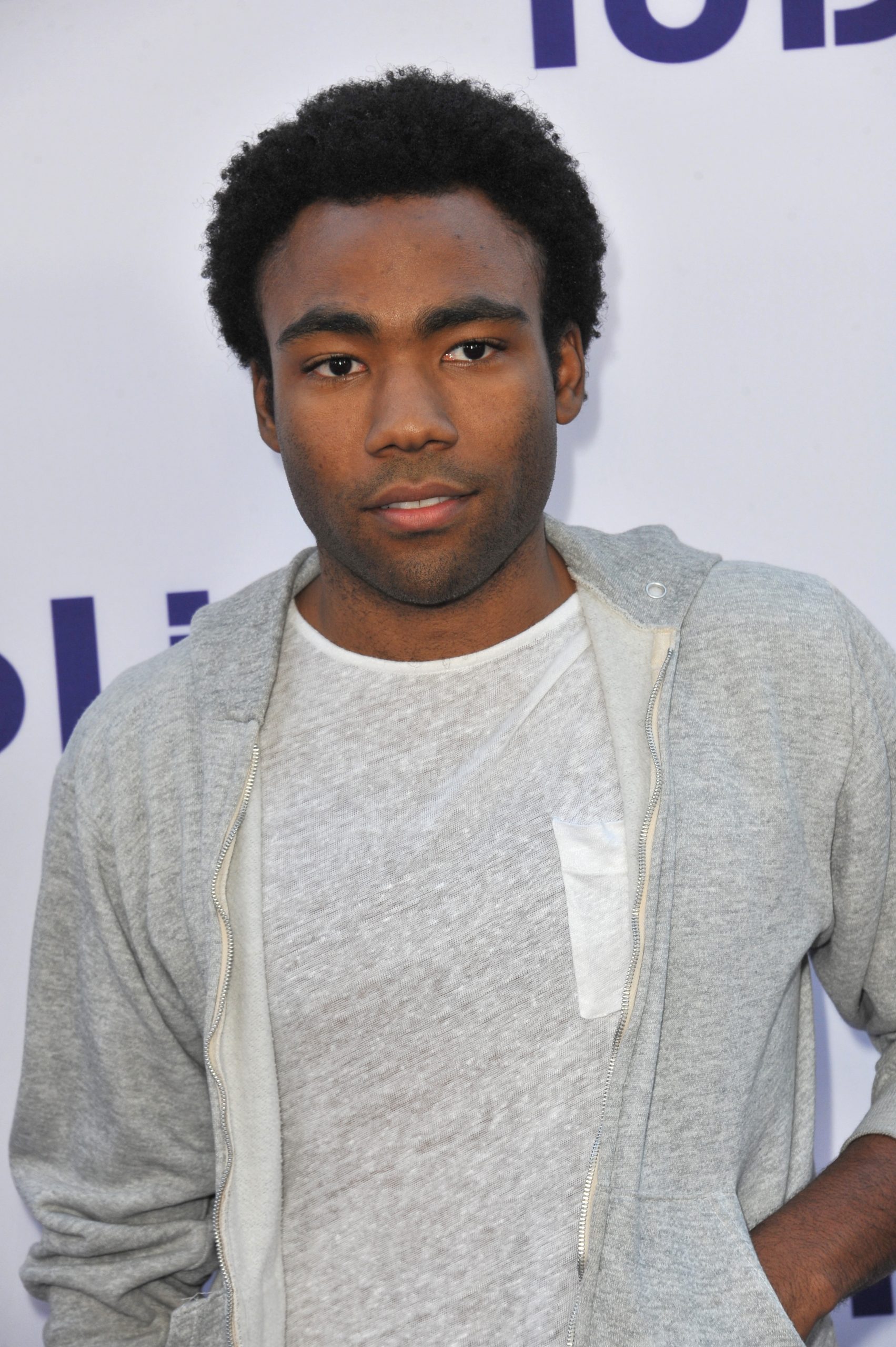
On this date in 1983, writer, actor, rapper and comedian Donald McKinley Glover was born at Edwards Air Force Base in California. His mother, Beverly, was a babysitter. His father was a postal worker. He had two siblings and several foster siblings, who grew up together in Stone Mountain, Ga. Glover graduated from New York University with a degree in dramatic writing in 2006. Immediately after graduating, he began writing for the NBC comedy “30 Rock,” for which he received a Writer’s Guild nomination in 2009. However, Glover is best known for playing Troy, the “jock” in a community college study group on the comedy series “Community.”
In addition to writing and acting, Glover performs stand-up comedy and recorded a special for Comedy Central in 2010. He also raps and has released several albums and EPs under the stage name Childish Gambino. His 2014 album “Because the Internet” was nominated for a Grammy for Best Rap Album. He was also nominated for best rap performance for the single “3005.”
Although he was raised a Jehovah’s Witness, Glover has distanced himself from his faith. In the song “Won’t Stop,” Glover refers to himself as an “airport atheist.”
“I think everybody kind of hits that point where they say, ‘Okay, am I doing this out of tradition? Do I actually believe this?’ ”
— Interview, Zap2it (Feb. 3, 2011)
Pedro Almodóvar
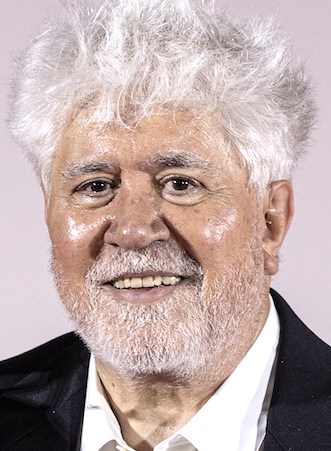
On this date in 1949, filmmaker Pedro Almodóvar Caballero was born in rural Calzada de Calatrava, Spain, to Francisca Caballero and Antonio Almodóvar. His father, never a financial success in various enterprises, at the time was sort of a traveling salesman with his wares packed on the back of a mule. His mother earned pocket money by reading and writing letters for illiterate neighbors.
His brother Agustín later described their rustic birth village as “the sort of place where people spend their whole lives saving up for a decent headstone in the cemetery.” Almodóvar got a scholarship at age 8 to attend a Catholic boarding school run by Salesian priests and soon knew the priesthood did not appeal to him like it did his parents.
He moved to Madrid to attend the National School of Cinema when he was 18, supporting himself as an administrative assistant with the phone company Telefónica, where he worked for 12 years while enmeshing himself in experimental film and theater and writing for newspapers and magazines. His first feature film, “Pepi, Luci, Bom” (1980), attracted followers and drew comparison to films by John Waters for its irreverence toward sexuality and social mores.
His next feature, “Labyrinth of Passion” (1982), focused on a nymphomaniac pop star who falls in love with a gay Middle Eastern prince. It drew even more followers and marked the first of several collaborations with actor Antonio Banderas. “Dark Habits” (1983), a black comedy, featured a cabaret singer seeking refuge in a convent of nuns with extremely sordid and some illegal habits (lesbianism, cocaine, murder). It drew controversy from religious critics after premiering at the Venice Film Festival.
Almodóvar started his own production company, El Deseo, in 1986. Nearly all its staff members in 2004 were women, explained production director Esther García in the New York Times Magazine: “There’s an expression in Spain. One cock and all hens. That is this company. Pedro communicates very well with women.”
The film that brought him attention and success in the U.S. was “Women on the Verge of a Nervous Breakdown” in 1988. “Tie Me Up! Tie Me Down!” (1990), was initially given an X rating, later changed to NC-17. “All About My Mother” (1999) won an Oscar and Golden Globe for Best Foreign Language Film. “Talk to Her” (2002) brought Almodóvar his first personal Academy Award, for Best Original Screenplay, and he was nominated for Best Director.
“Bad Education” (2004) focused on a priest’s sexual relationship with his teen male student. Discussing the film made him remember his Catholic education and how he was told he had an “abrasive” character. “Because my education was under the priests, I always had problems. The priests considered my questions heretical. I discovered the word ‘hedonist,’ and I thought of myself as a hedonist. At the same time — I think it was after seeing an Antonioni movie — I discovered the word ‘nihilism.’ I was 10 or 12.” (New York Times Magazine, Sept. 5, 2004)
After several dramatic and serious films, the comedic “I’m So Excited!” (2013), the title of a Pointer Sisters song, was deemed by one reviewer as “a piece of extravagant, kitsch entertainment.” Almodóvar called it “my gayest film ever” when it was released. (The Guardian, April 27, 2013)
“The Room Next Door” (2024) premiered at the Venice Film Festival and became the first Spanish film to win the Golden Lion. Starring Tilda Swinton and Julianne Moore, it was Almodóvar’s first feature-length film in English. Though he is fluent in English, he prefers to speak and write in Spanish.
Moore’s role is best friend to Swinton, who is dying after failed cancer treatments and wants to end her life peacefully with a euthanasia pill she bought on the dark web. “When I was younger, I didn’t think so much about death because, in my case, that I don’t believe in God,” Almodóvar explained. “[I]f I am seriously ill, then absolutely I want to decide about my death. If life doesn’t offer me nothing but pain, then I want to be the owner of my death.” (NPR “Morning Edition,” Dec. 19, 2024)
Openly gay and an avowed atheist, he described himself as actively bisexual until age 34 and has been with his partner, the actor and photographer Fernando Iglesias, since 2002. They live in separate dwellings in Madrid.
PHOTO: Almodóvar at the 2024 Venice International Film Festival; Harald Krichel public domain photo.
“I am not a believer. Spain is a nonconventional country, but the majority are Catholic. But I am not. I never believed in God. So I feel really I don’t have any support of any religion or any credo.”
— Almodóvar explaining on PBS “Amanpour and Company” how he feels about death and mortality (Jan. 10, 2024)
